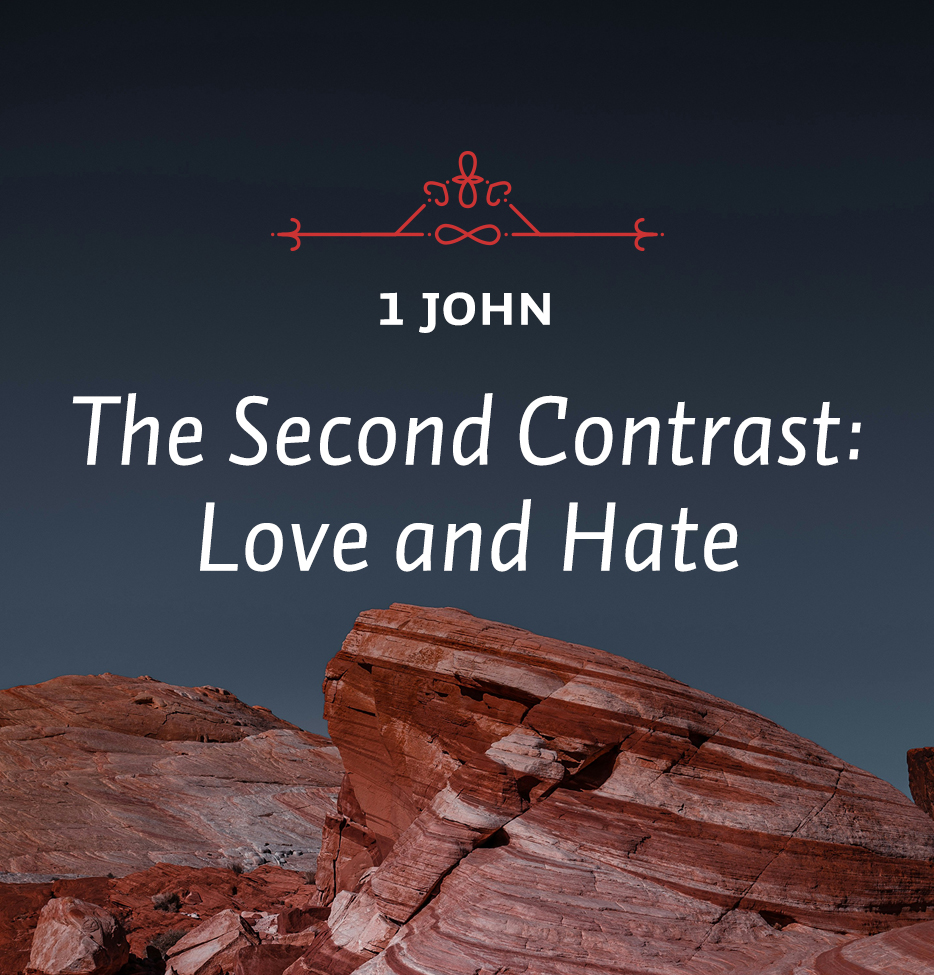At no point is the contrast between one of John’s tests and its opposite more important for contemporary men and women than the contrast between love and hate. This is so simply because the meaning of love has become so debased in modern culture that practically anyone will claim to have love according to his own definition. A popular song says, “Everybody loves somebody sometime.” So if this is correct and if the meaning given to love in this song is John’s meaning, then everybody can claim to have met John’s test and be a Christian.
This is not the kind of love about which John is speaking, of course. Consequently, it is of great importance to follow his reasoning in this section of the letter as he contrasts love with hate and works out the origins, nature and practical consequences of both. On the one hand, hate originates with the devil and indicates the existence of a bond with him. It expresses itself in jealousy and ends in murder.
On the other hand, love originates in God and indicates the existence of a bond with God. It expresses itself in self-sacrifice and in many practical demonstrations of concern for those in need. These two points of emphasis—the origin and nature of hate and the origin and nature of love—form the two main sections of the passage.
In presenting his analysis John is conscious of the fact that he is presenting nothing new. Indeed, he is glad of that, for the commandment itself is “the message that ye heard from the beginning.” It is interesting in this connection to note that nearly everything he says is stated elsewhere in Scripture, so that John may be said almost to be quoting it. The commandment to love is Christ’s command to His disciples recorded in John 13:34. The story of Cain comes from Genesis 4 and is a totally accurate analysis of that story. John’s statement that Cain “was of that wicked one” reflects Jesus’ words regarding those who were trying to murder him: “Ye are of your father the devil, and the lusts of your father ye will do. He was a murderer from the beginning” (John 8:44). Verse 13 echoes John 15:18-19: “If the world hate you, ye know that it hated me before it hated you. If ye were of the world, the world would love its own; but because ye are not of the world, but I have chosen you out of the world, therefore the world hateth you.” There are also a number of lesser references (cf. John 3:7; 5:28, 38). The phrase “to lay down one’s life” is frequent in and unique to the Johannine writings (cf. John 10:11, 15, 17, 18; 13:37, 38; 15:13).
Love between Christian brothers suggests hatred between brothers as its contrast. So John turns to the example of Cain and Abel. Cain is the only proper name (except for the names of Christ or God) occurring in this letter and the only explicit Old Testament reference in the three epistles. Cain was a murderer, by which he showed his spiritual lineage. He was of the wicked one, John says. And why did he murder his brother? Was it because his brother was a great sinner and deserved to be slain? On the contrary, it was because his brother was righteous and his own deeds were evil. In other words, the ultimate act of murder grew out of a more basic heart attitude of hate and jealousy.






